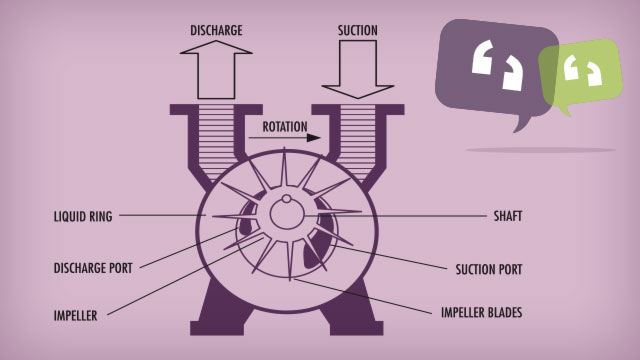 Top 6 Questions You Should Ask When Buying a Vacuum Pump
Top 6 Questions You Should Ask When Buying a Vacuum Pump
- What will you be using the vacuum for? Filtration needs modest vacuum. Evaporation requires deeper vacuum. Molecular distillation requires even more. Match the pump to the use.
- Can you use a dry (oil-free) vacuum pump? Oil-free vacuum pumps can support most lab applications. For the service advantages, choose a dry pump where possible.
- What is the pumping capacity at the intended vacuum level? Actual pumping speed declines from the nominal speed as depth of vacuum increases. The rate of decline differs among pumps.
- Do you work with corrosive media? Standard duty pumps have lower purchase costs, but corrosion-resistant pumps will have lower lifetime costs if working with corrosives.
- Should you invest in vacuum control? Electronics can improve reproducibility, protect samples, and shorten process times when specific vacuum conditions need to be maintained.
- What is the lifetime cost of operation? Include purchase cost, service intervals, servicing cost, pump protection (e.g., filters, cold traps), and staff time for operation.
Types of vacuum pump used by survey respondents:
| Oil-free diaphragm pump | 46% |
| Oil-sealed direct drive pump | 44% |
| Oil-sealed belt-drive pump | 25% |
| Central vacuum to bench turrets | 20% |
| Water jet aspirator vacuum | 17% |
| Compressed air systems | 17% |
| Oil-free scroll pump | 13% |
| Other | 4% |
Vacuum pump applications as reported by survey respondents:
| Vacuum or pressure filtration | 62% |
| Degassing | 33% |
| Mass spectrometry | 27% |
| Rotary evaporator | 27% |
| Liquid aspiration | 23% |
| Freeze drying | 21% |
| Vacuum oven | 13% |
| Gel dryer | 8% |
| Other | 13% |
Nearly 57% of respondents are engaged in purchasing a new vacuum pump. The reasons for these purchases are as follows:
 | Replacement of aging pump | 63% |  |
 | Addition to existing systems, increase capacity | 15% | |
| Setting up a new lab | 8% | ||
 | First time purchase of a pump | 7% | |
 | Other | 7% |
Top 10 Features/Factors Respondents Look for When Purchasing a Vacuum Pump:
| Durability of product | 89% |
| Value for price paid | 72% |
| Ease of use | 72% |
| Leak tightness | 71% |
| High suction | 59% |
| Oil-fee/contamination-free pumping | 53% |
| Maintenance costs | 50% |
| On-site maintenance/cleaning | 50% |
| Safety and health features | 45% |
| Warranties | 45% |
For more information on vacuum pumps, including useful articles and a list of manufacturers, visit www.labmanager.com/vacuum-pumps













